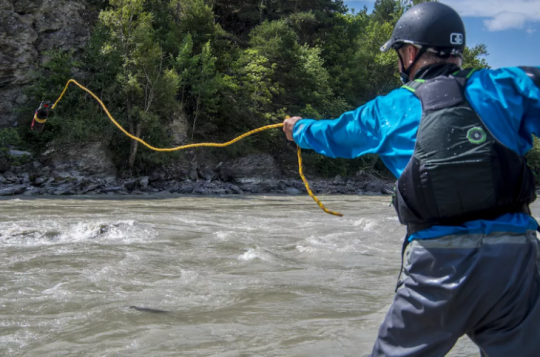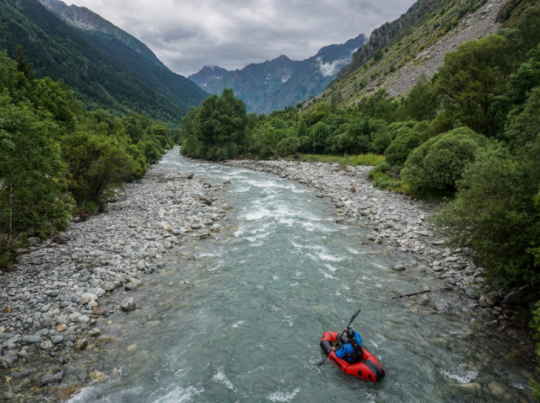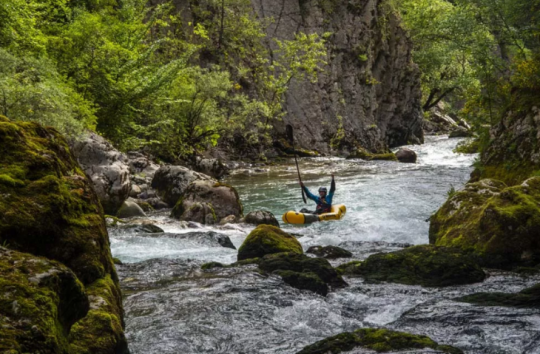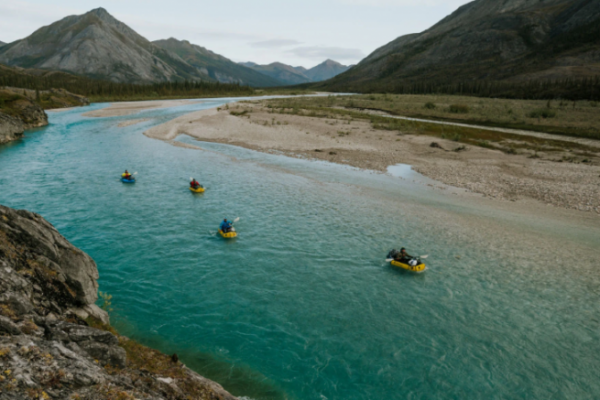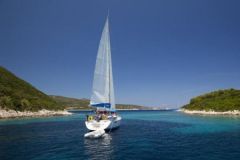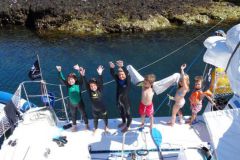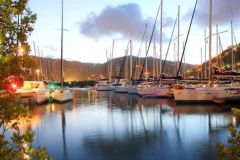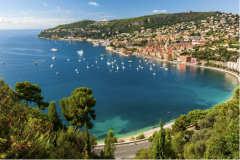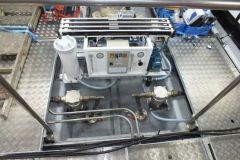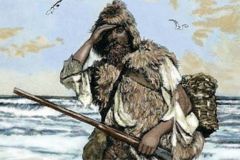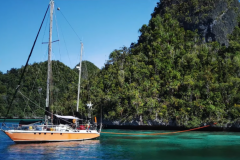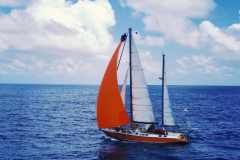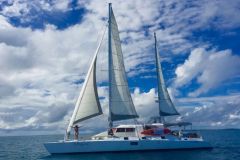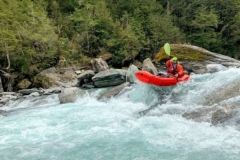With the rise of adventure boating and the growing demand for wilderness experiences, the packraft a compact miniraft designed for both whitewater and flatwater adventure, has a bright future ahead of it. New brands are emerging and offering ever more efficient models, while the community of enthusiasts continues to grow. Here's a closer look at this increasingly popular craft.
A concept from the wilderness
The packraft has its origins in northern expeditions. In the 1980s, adventurers in Alaska were looking for a way to cross rivers and fjords with complete autonomy. The solution? An ultra-light, inflatable boat that could be folded into a backpack. Since then, the concept has been perfected and democratized to appeal not only to extreme outdoor enthusiasts, but also to lovers of water sports and multi-sport travel. Today, the packraft is an essential tool for those who wish to combine hiking, cycling and sailing. It allows you to negotiate natural obstacles without detours, access unexplored areas and add a nautical dimension to classic itineraries.
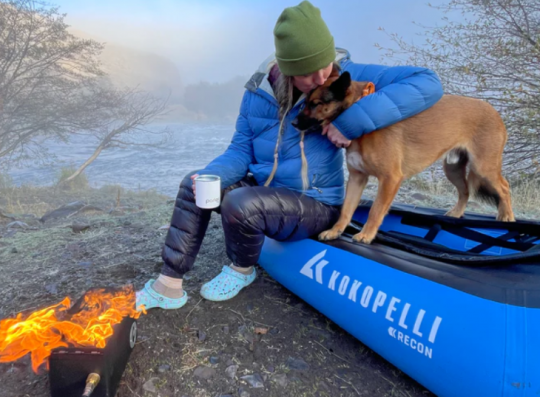
Design for efficiency and practicality
A packraft stands out for its minimalist, ingenious design. Made from nylon coated with TPU (thermoplastic polyurethane), it combines lightness and sturdiness. Depending on the model, it weighs between 2 and 5 kg, making it easy to carry in a simple backpack. It inflates in just a few minutes and can support loads ranging from 100 to 250 kg, depending on its size. Specialized brands offer different configurations:
-
Open packrafts: lighter, ideal for calm waters and long-distance touring.
-
Decked or self-draining packrafts: designed for whitewater, they offer enhanced wave protection and efficient drainage.
-
Two-seater models: longer and faster, perfect for duo expeditions.
-
Packrafts designed for bike-rafting: with special attachments for carrying a bike.
Leading brands
In response to the growing popularity of these products, a number of manufacturers have developed models adapted to a wide range of uses. Among the industry leaders are :
-
Alpacka Raft alaskan heritage
A pioneer of the modern packraft, the American brand Alpacka Raft is an essential reference. Renowned for the robustness and technical sophistication of its boats, it offers models suitable for novices and whitewater experts alike. Its Expedition model is particularly appreciated on shallow, turbulent rivers requiring very fast turns and tight holds. It suits the paddler who wants a super-versatile cold-water packraft for light- and white-water adventures. If you're a warm-water paddler or prefer a self-draining model, the Gnarwhal may be a better option.
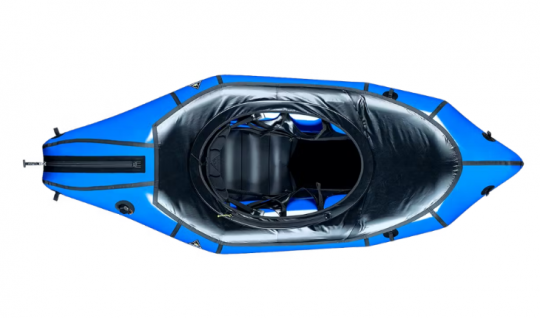
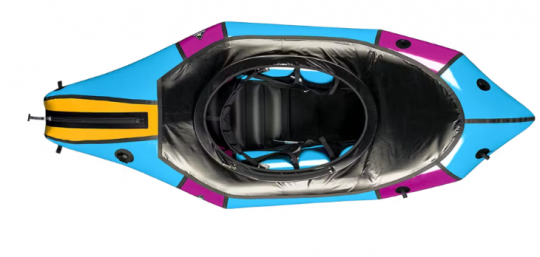
-
Kokopelli performance and accessibility
Kokopelli, another major player, focuses on accessibility without compromising on quality. Its packrafts, such as the Rogue-Lite and XPD, stand out for their lightness and ease of inflation.
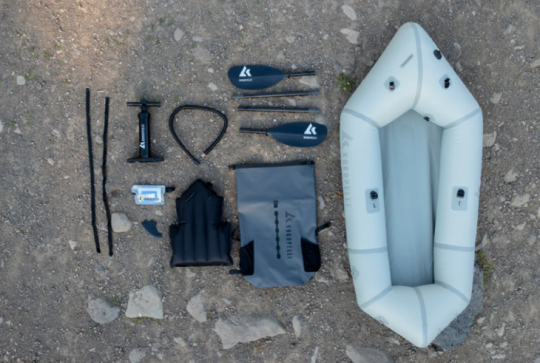
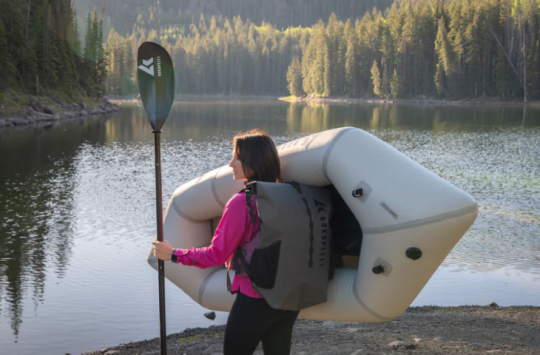
-
Mekong french expertise
Based in the Drôme region of France, Mekong is a French brand that focuses on innovation and durability. Designed with resistant materials and internal storage options, its models, like the Pablo Whisky Bar, are ideal for long itineraries and autonomous expeditions with the option of taking your bike on board.
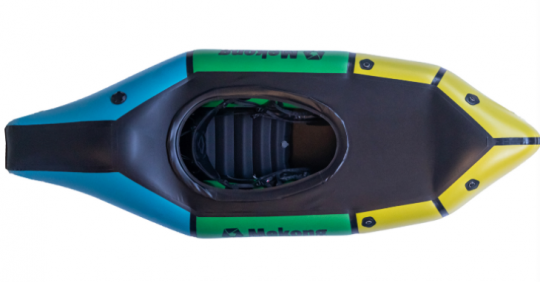
-
MRS (Micro Rafting System): modularity first and foremost
Present in Europe through several dealerships, this brand offers compact, customizable packrafts. The Nomad S1 is a model prized for its comfort and load capacity, ideal for adventurers looking for a versatile craft. The latest model in the series, the Mini Shark is distinguished by a more streamlined hull and a slightly raised bow, optimizing wave crossing and packraft agility in whitewater.
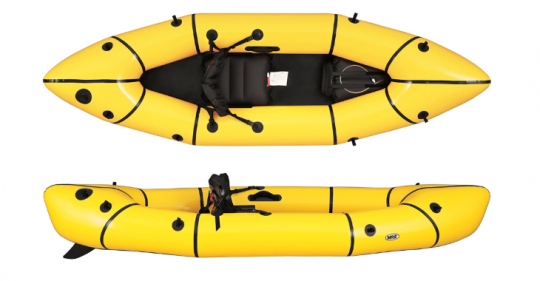
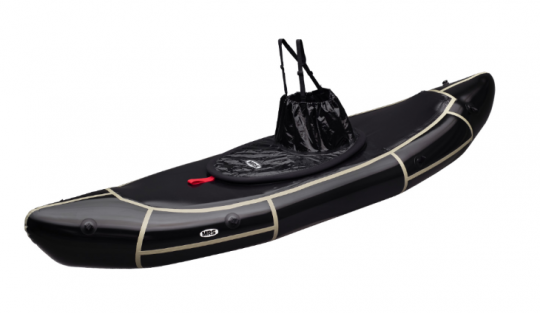
Multiple uses, from sporty travel to committed exploration
The packraft's appeal lies primarily in its versatility. It adapts to a multitude of activities and environments, including :
-
River adventure: an alternative to kayaking
Thanks to its stability and ability to absorb shocks, the packraft has become a popular option for river cruising on both classic and more technical courses.
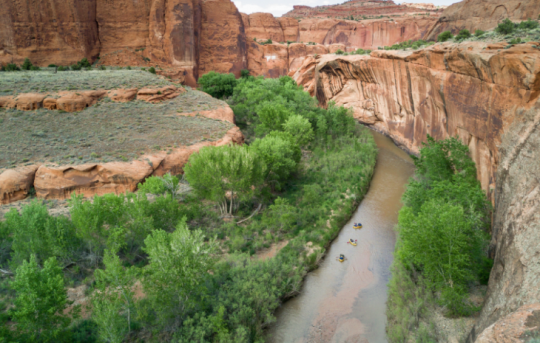
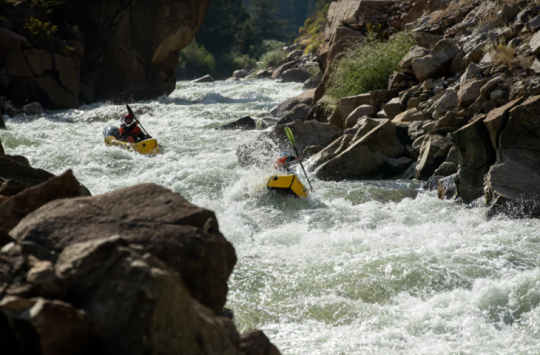
-
Bike-rafting: a fusion of cycling and sailing
More and more adventurers are combining bikes and packraft to push back the boundaries of multi-sport travel. By combining land and river routes, they can explore remote areas in complete autonomy.
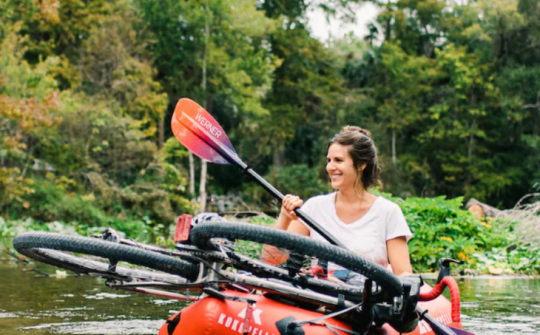
-
Urban exploration: rediscovering the city from the water
Packraft opens up new possibilities for exploring urban environments. More and more curious people are venturing onto the waterways that run through cities to discover a whole new perspective on these spaces.
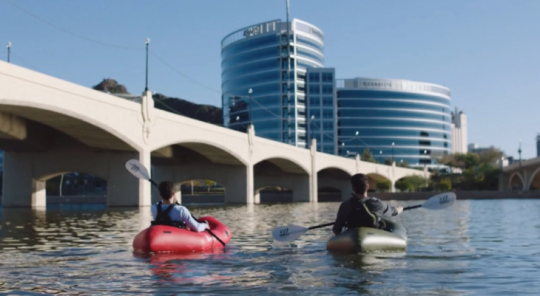
-
Maritime exploration: a different way of crossing the coasts
While the packraft is mainly used in freshwater, some models can be used as a dinghy for your sailboat, a practical solution for reaching land or exploring sheltered coastal areas.
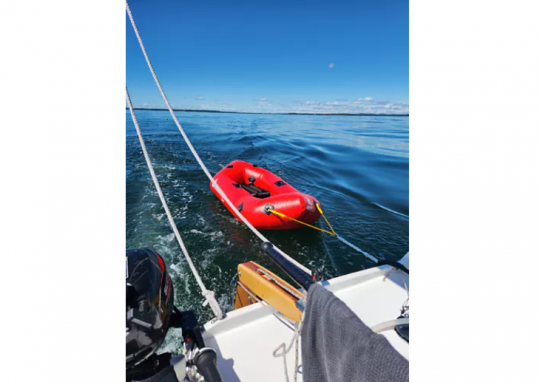
-
Committed expeditions and ecotourism
The packraft is also a practical tool for scientific and environmental missions. Biologists and ecologists use it to observe wildlife, collect data in wetlands or raise awareness of river preservation.
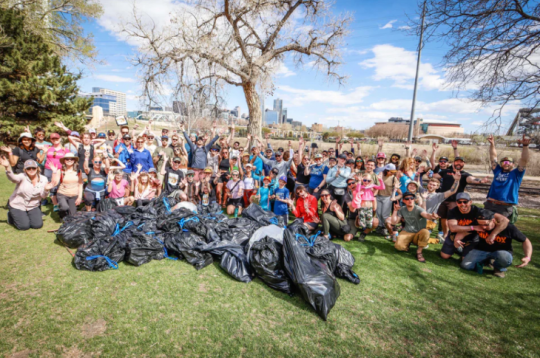
Safety and best practices
Like all nautical activities, packrafting requires that certain essential rules be respected:
-
Wear appropriate equipment: lifejacket, helmet (in whitewater), neoprene suit if the water is cold.
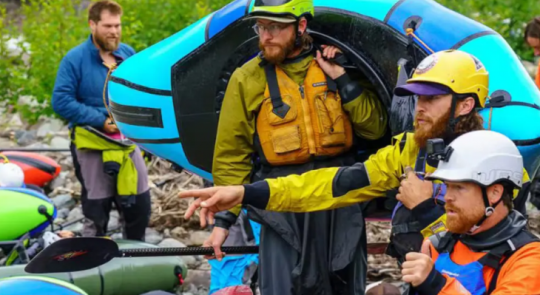
-
Find out about navigation conditions: water levels, obstacles, local regulations.
-
Plan your route: identify exit points in the event of a problem.
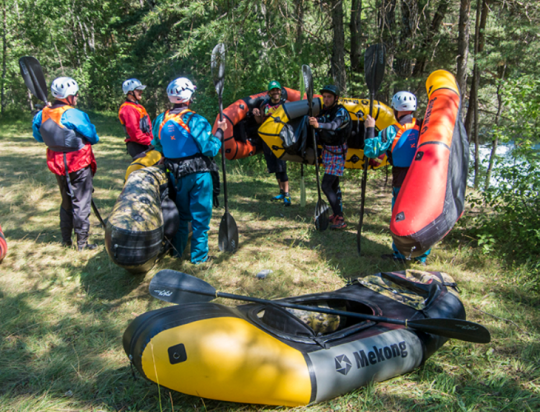
-
Never overestimate your abilities: it's better to start on easy courses before tackling the rapids.
-
Respect the environment: avoid protected areas and leave no trace of your passage.
From May 29 to June 1, 2025, the Packraft Festival will take place on the banks of the Drac, between Grenoble and Gap: an ideal location for packraft enthusiasts and adventurers in search of new sensations. The event will immerse participants in the world of packraft, with introductions for beginners, hands-on workshops and bikerafting sessions. Participants will have the opportunity to descend rivers classified from 1 to 4, while learning the basics of whitewater safety thanks to specialized training courses. The event is also intended to be a convivial occasion, with meetings, concerts and a warm atmosphere perfect for exchanging ideas with other enthusiasts in an exceptional natural setting. It's the perfect opportunity to get in on the adventure, while learning good boating practices!
